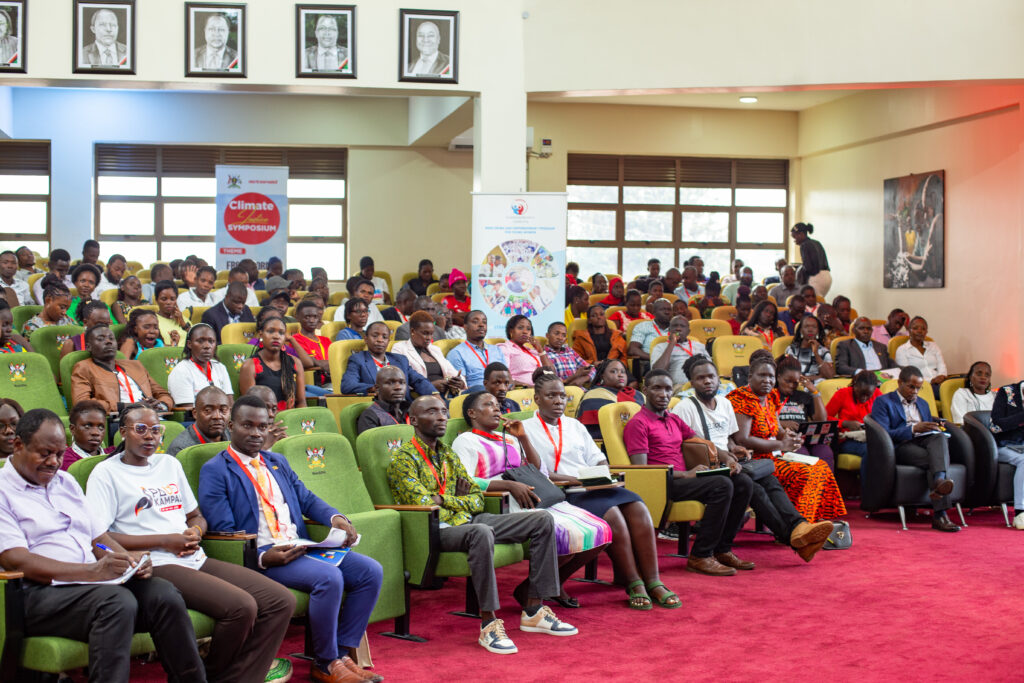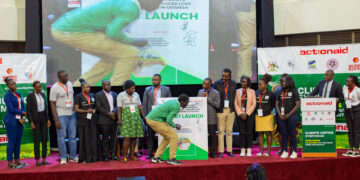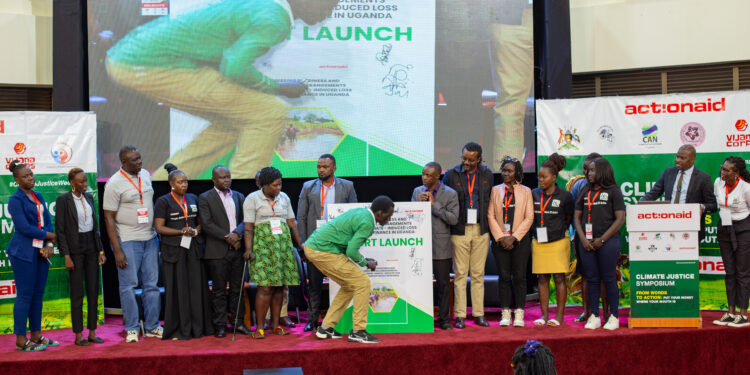“Could it be that Africa is not winning the climate crisis war because we are fragmented?” wondered Susan Otieno, ActionAid Kenya Country Director.
She was speaking Friday during the Climate Justice Symposium held at Makerere University School of Public Health in Kampala.
According to Otieno, there is a need to remove barriers that infringe on the climate discourse.

“If we are not invited to their spaces, we need to create an Africa-led space. Unity is critical if we are to fight the climate crisis.”
She said that although the New Climate Change Report allocated over 65 million new jobs for the Green Economy, most of them are male-dominated roles creating gender inequalities for women and girls yet are the most affected by climate change.
Women bear the brunt of climate change
“There are great challenges preventing us from attaining a green, just, and feminist economy. To our governments what is the domestic financing for a green, just and feminist economy? A green economy can only thrive when there is fair legislation,” she noted.
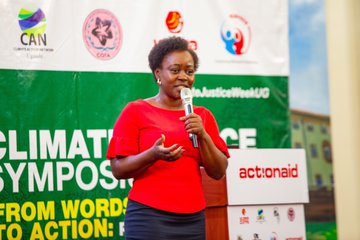
She added: “When we talk about climate justice, where are the women and the girls in the discussion? We need to do what we need to do to have women in the climate justice conversation.”
Uganda’s Representative for the East African Legislative Assembly, Hon Jacqueline Amongin, said: “The more we build the capacities of our people within, the more we win when it comes to climate change and justice. We must think ahead.”
Amongin who doubles as the Chair of Parliament’s Climate Change Committee, said it is the women who often bear the brunt of climate change effects.
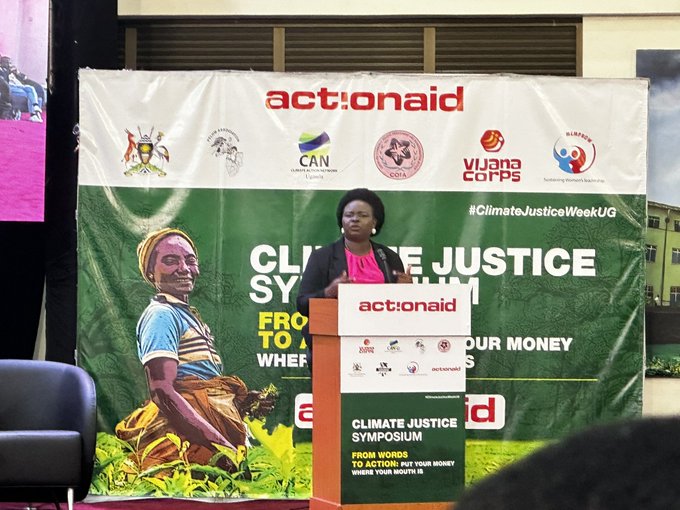
“From fetching water to collecting firewood, they face daily challenges amidst changing weather patterns There are not many African countries that have come up with a law on climate change, and that for us, is a plus when it comes to this fight,” she noted.
Clean cooking and electrification
Speaking at the same symposium, Miriam Natabo, the Office of the United Nations High Commissioner for Refugees (UNHCR) Associate Environment & Energy Officer, said there are 1.62 million displaced and stateless persons in settlements that are environmentally sensitive.
“Amidst 1.62 million displaced and stateless individuals residing in environmentally sensitive areas, we have initiated 1,221 forest reserve restorations to address climate challenges,” she noted.

She said UNHCR and partners are championing the use of alternative cooking fuels such as electricity, ethanol, and briquettes.
“This is done such that we can gradually shift from the use of charcoal and firewood in refugee and host communities.”
Dr Gerald Banaga-Baingi, the Assistant Commissioner-Technical Planning at the Ministry of Energy and Mineral Development, said for the energy transition to take place, electrification is key and clean cooking is fundamental.
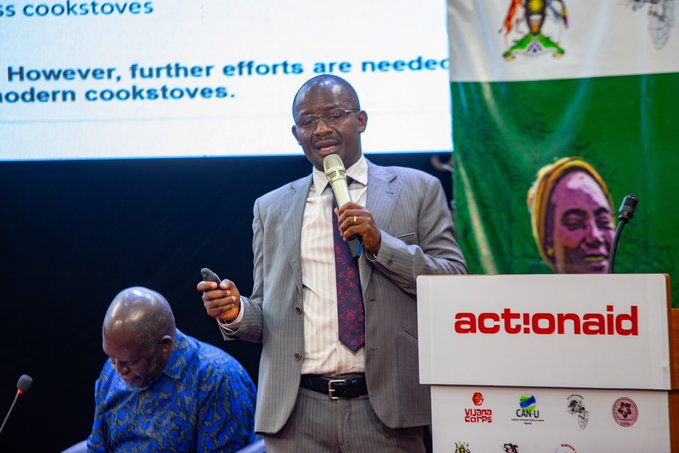
“The oil resources will facilitate the energy transition. The Liquefied Petroleum Gas (LPG) from oil will be critical to make clean cooking available,” said Banaga who has served as the Project Manager of the Global Fuel Economic Initiative (GFIE).
“We are going to move away from the traditional use of biomass to electricity and oil. Clean cooking through the use of electricity and Liquefied Petroleum Gas (LPG) is a target by 2030.”
He added: “Electricity electrification and clean cooking are fundamental for energy transition. Oil resources will facilitate this shift, with LPG playing a critical role in ensuring clean cooking accessibility.”
Sir Sande Bob George, a senior officer at the Ministry of Agriculture Animal Industry and Fisheries (MAAIF), said agroecology is one of the pathways that we can take to sustain the environment.
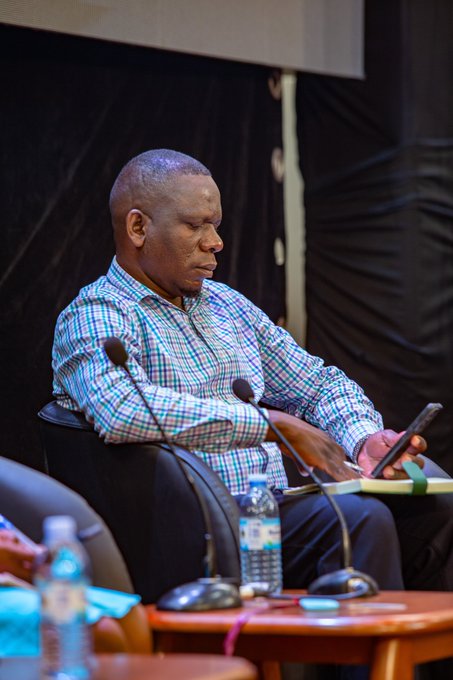
“Agroecology as a practice embraces all these farming practices that mitigate climate change,” he noted, adding: “Addressing climate change through mitigation is central to agroecology. Our approach, exemplified by the four-acre model, emphasizes the integration of various enterprises to promote environmental conservation.”
He said both mitigation and adaptation are necessary to address climate change, however, the urgency for adaptation is growing as the effects of climate change are already being felt around by the people in Uganda.
On his part, Augustine Tamale, the Board Chair of ActionAid International Uganda, said if people occupy the wetlands where water can be controlled from other water bodies, then they should know that they are causing the problems.
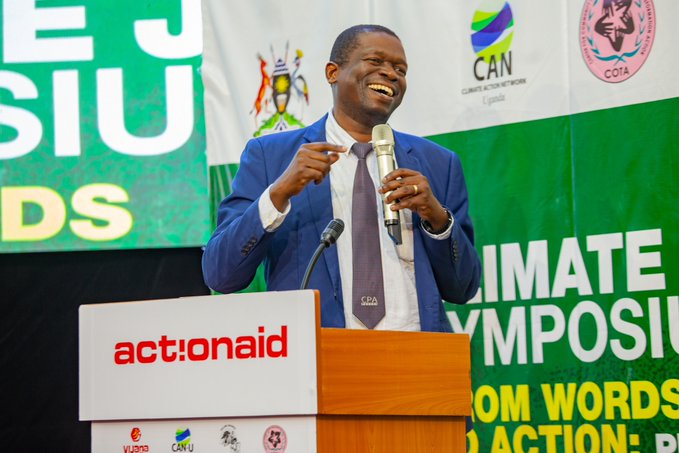
“Let’s now turn into actions, change our behaviours. We battle different crises and the people who cause it do not suffer. Our actions from this symposium should be to empower young people to demand climate justice,” he stated.
